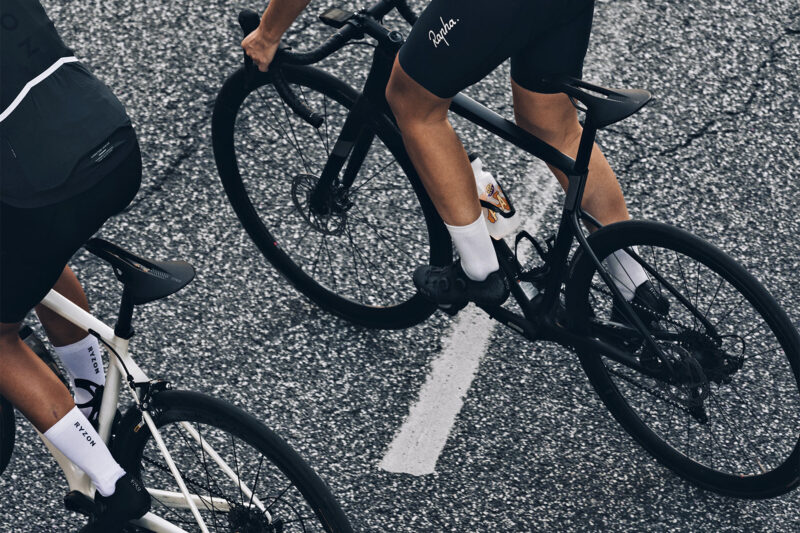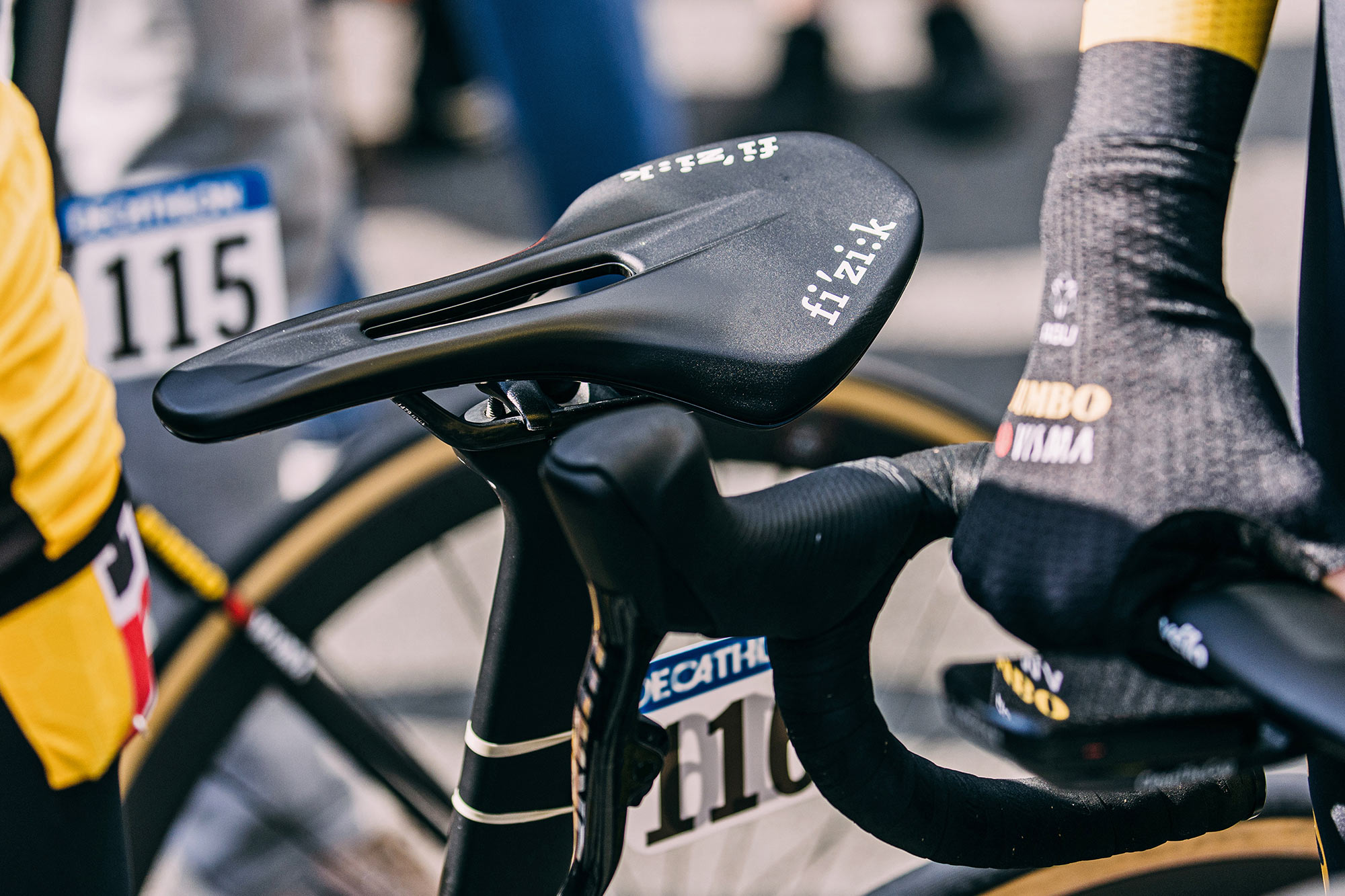We’ve actually seen several updates & evolutions of the long-running Fizik Antares saddle in the last few years as a result of Fizik’s 3D-printed padding project. But like the latest Aliante reshaping, this new family of Antares saddles sticks with conventional padding, and instead finds lighter weight and improved comfort through a tweaked profile and premium materials…
Fizik Vento Antares on-road & off-road racing saddle, revised
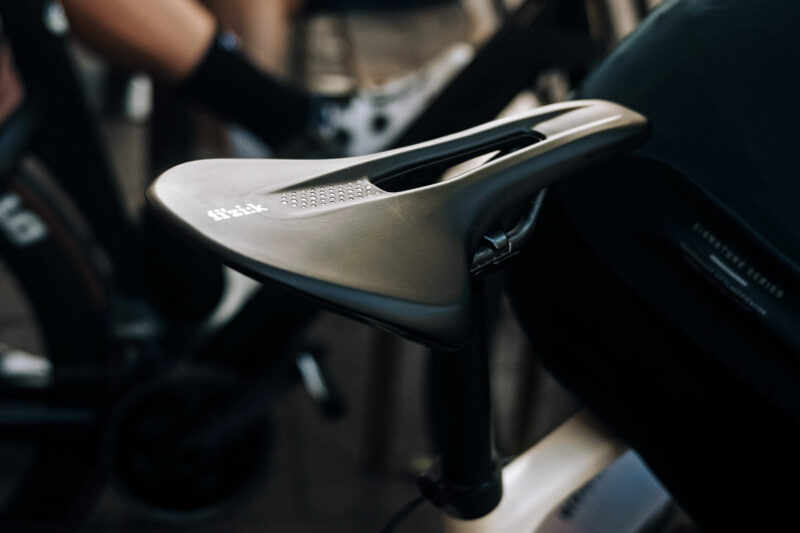
The Fizik Antares is the brand’s top racing saddle, across pretty much all non-gravity-focused disciplines. And that’s why it has been the platform for their most technical innovations in recent years – highlighted by their Concepts prototype project that eventually became a fully-fleshed-out range of Adaptive saddles. But ultimately, 3D-printed saddles are super expensive and still not the lightest possible.
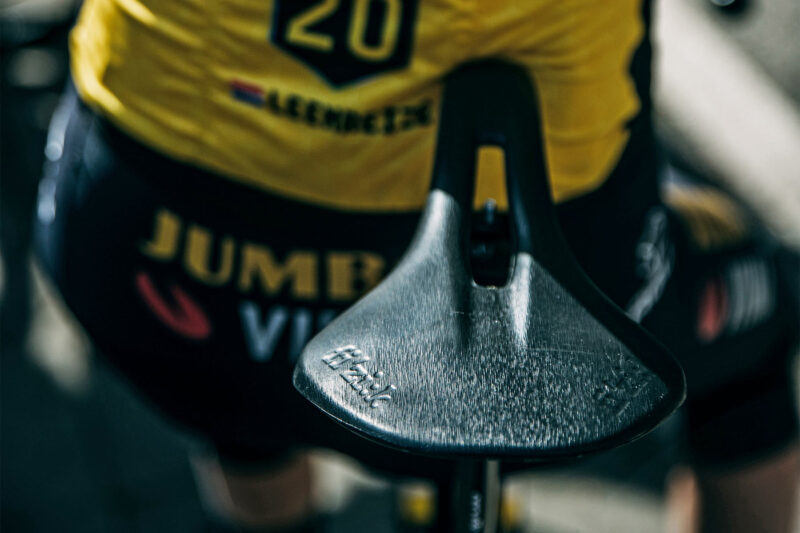
Coming in up to 30% lighter and still cheaper, or just a shade lighter but nearly half the price of that top Antares Versus Evo 00 Adaptive saddle, the carbon-railed 00 & R1 versions of the revamped Antares deliver top-tier performance with more conventional padding, now with improved ergonomics for greater rider comfort. Plus, there are R3 & R5 versions that get the performance boost, but for much more accessible pricing at the cost of a few tens of extra grams.
What’s New? An updated ergonomic Antares shape
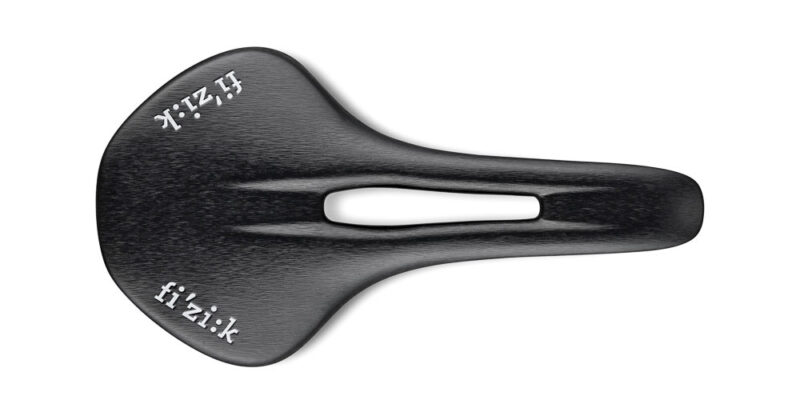
Like that revamped endurance Aliante saddle that had also been around for more than two decades, the new Antares gets the same theory of updates:
Again, the most visible shape change for the Vento Antares is its ergonomic cutout, now extending wider and further into the nose vs. the Antares Open for improved blood flow and pressure relief. To make that work, the new Vento Antares also gets a slightly wider nose. The mid-section of the saddle now features narrower ridges on either side of the big cutout, thanks to new dual-density foam padding that tapers up to a flatter nose, and offers more firm support in the back under the sit bones.
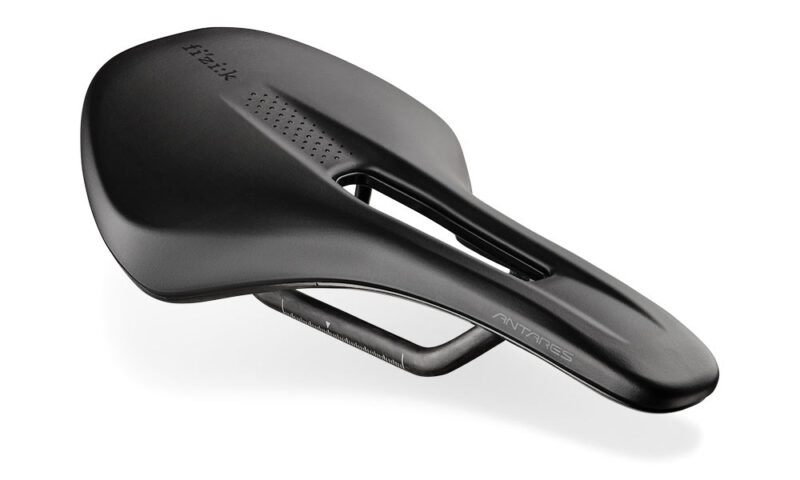
The thought process here seems to be that it gives the flexible, competitive rider a longer area at the front of the saddle to move back-and-forth in a tucked aero position, while maintaining the same comfort and elimination of hot spots.
The new 270mm long Vento Antares – Vento is Fizik-speak for Racing products – saddle range includes four tiers 00, R1, R3 & R5. All feature this new shape with dual-density foam padding, all come in 140 or 150mm widths (slightly smaller than the 141/153mm combo of the previous generation), all get WingFlex in the front edges of the rear wings of the shell to move with your thighs as you pedal, and the two top-tier swap to standard 7x9mm oval carbon rails for more universal seatpost compatibility.
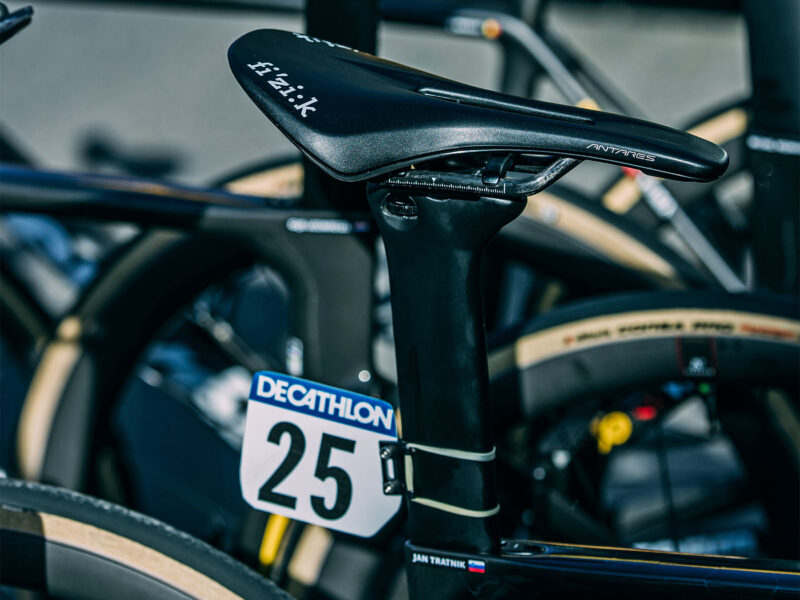
The new generation of Antares saddles highlight the constant innovation we see every day at fizik. We recognize the importance of maximising comfort and appreciate the varied needs of road riders no matter what their style of riding
– Fizik product manager Alex Locatelli
Fizik Vento Antares – Pricing & Options
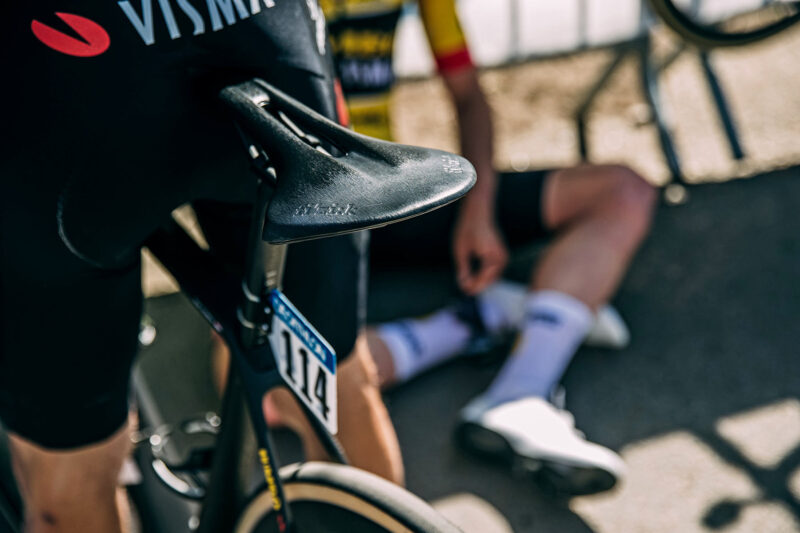
The top model of the new Antares is the $300 / 300€ Fizik Vento Antares 00 featuring a unique EVA padding injected directly onto the full carbon shell, with its one-piece carbon loop rails for max stiffness and absolute lightest weight.
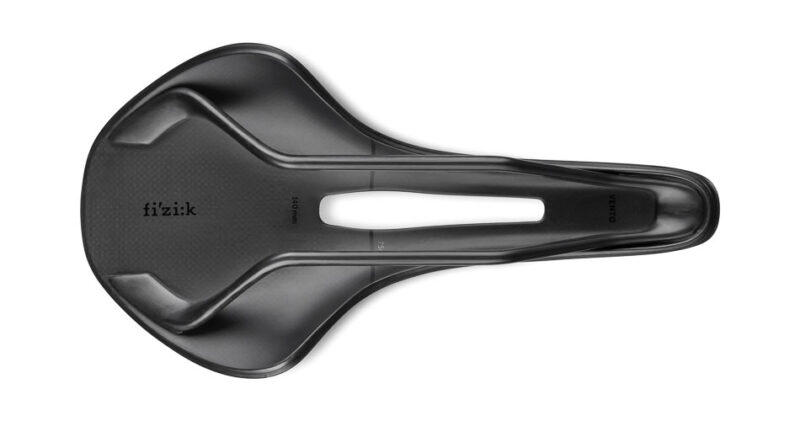
The 00 saddles have claimed weights of just 118g (140mm) or 124g (150mm), making them 50g/47g lighter respectively than their 3D-printed Adaptive analogs – and ninety bucks cheaper.
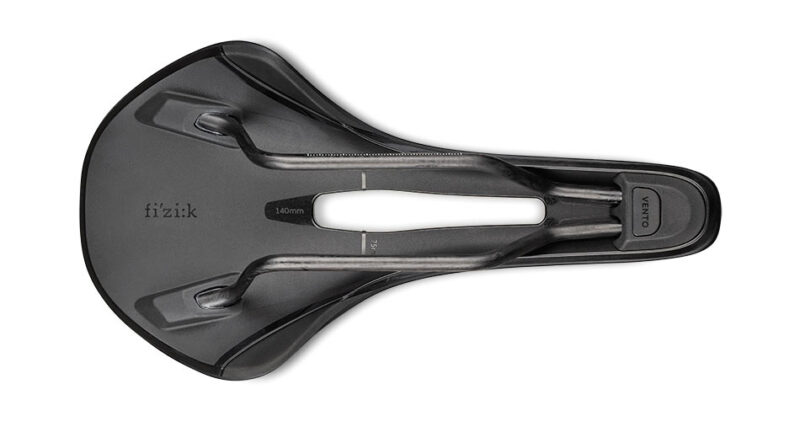
The 2nd-tier $225 / 200€ Fizik Vento Antares R1 might be the real value winner of expensive saddles here, though. It gets more conventional dual-density padding with a synthetic cover, a carbon-reinforced nylon shell, and two-piece oval carbon rails. And it still weighs a claimed 161g (140mm) & 166g (150mm). That makes it 7g/5g lighter than the Adaptive 00 saddles, but up to 190€ cheaper. Or compare it to the same level Adaptive R1 saddle and it is 19g/17g lighter, and still up to 100€ cheaper.
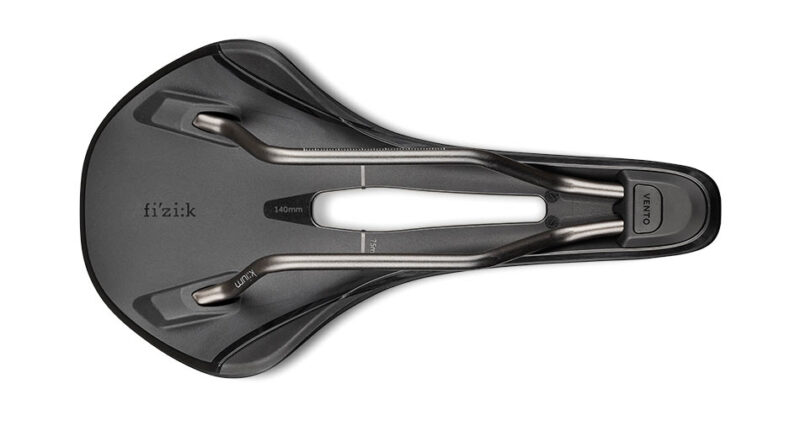
But if you want the same performance without breaking the bank, the $150 / 150€ Fizik Vento Antares R3 is a pretty solid deal with the same carbon-reinforced nylon shell but round K-ium hollow ti rails for about thirty-five extra grams, claimed 195g (140mm) & 202g (150mm).
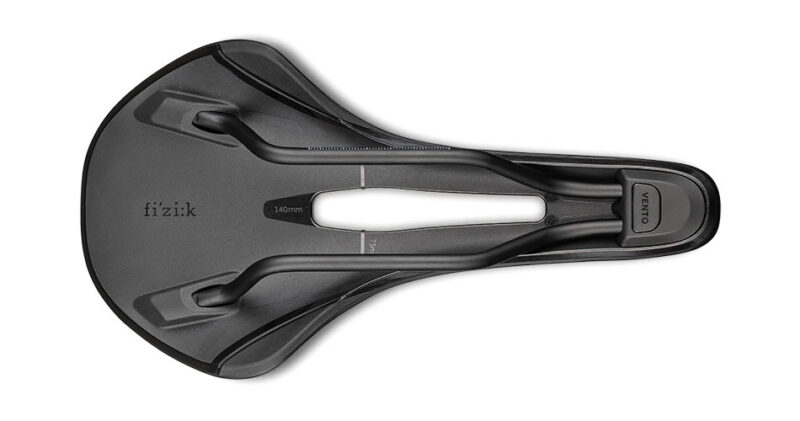
And lastly, the $130 / 110€ Fizik Vento Antares R5 still gets a carbon-reinforced nylon shell, but swaps to solid S-Alloy rails for just fifteen grams more, claimed 210g (140mm) & 217g (150mm).
